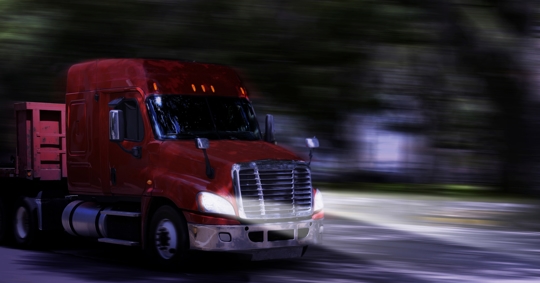If you’ve been involved in a truck accident, you’ve likely experienced just how overwhelming the aftermath can be. Beyond the pain of injuries and the stress of recovery, there’s the challenge of understanding your legal rights and pursuing compensation. But what makes truck accidents so much more complex than typical car collisions?
Truck accidents involve factors that don’t typically come into play in regular car accident cases. From dealing with federal trucking regulations to identifying multiple liable parties, these cases require a deeper understanding of the law and careful attention to detail. Here, we’ll explore why truck accident cases are uniquely complicated and share tips to help you along the way.
The Big Differences Between Truck and Car Accidents
At first glance, you might assume all vehicle accidents are handled the same way. However, there are some critical distinctions when a commercial truck is involved. Here’s why they’re different:
1. Multiple Liable Parties
A regular car accident usually involves one driver versus another. However, several parties might share responsibility for the crash in a truck accident. For instance:
- The truck driver could be liable if they were speeding, distracted, or driving while fatigued.
- The trucking company might also be at fault if they pushed the driver to break safety regulations or failed to maintain the vehicle.
- Truck parts manufacturers could be responsible for defective equipment, like faulty brakes or tires.
- Even cargo loaders could be held accountable if improperly secured cargo contributed to the collision.
Pinpointing the responsible parties is critical for a fair settlement, but it’s not always straightforward. Each party will likely have its own team of lawyers and insurers trying to deny liability.
2. Federal Regulations
Commercial trucks aren’t just regular vehicles—the federal government heavily regulates them. The Federal Motor Carrier Safety Administration (FMCSA) sets strict rules for trucking companies, such as:
- Hours of Service: Truckers are limited to a certain number of driving hours to prevent fatigue.
- Vehicle Maintenance: Trucks must be inspected and maintained regularly.
- Driver Qualifications: Drivers must meet specific licensing and training standards.
When these regulations are violated, accidents can happen. However, proving non-compliance often requires the help of an attorney familiar with federal trucking laws.
3. Severity of Injuries
It’s no secret that trucks are massive compared to passenger vehicles—we’re talking up to 80,000 pounds of raw industrial machinery. When a crash occurs, the force of impact can cause devastating injuries, such as:
- Spinal cord injuries or paralysis
- Traumatic brain injuries
- Broken bones or amputations
- Internal organ damage
These severe injuries often lead to long-term or even permanent disabilities, drastically increasing the stakes in truck accident cases. Higher medical bills and the need for lifelong care must be factored into any compensation claim.
4. Insurance Complexity
Car accidents usually involve a single insurance provider per party, but truck accidents are a different story. Multiple policies may be in play—for the truck driver, the trucking company, and even the cargo. Each insurer will try to shift blame or minimize payouts, adding yet another layer of complexity to your case.
5. Evidence Collection
Truck accident cases rely heavily on detailed evidence. Beyond photos of the accident scene, you may need:
- Black box data from the truck to reveal driving speed, braking, and more
- Driver logs showing hours worked and rest breaks
- Maintenance records to check for vehicle safety compliance
- Witness and expert testimonies
Accessing this evidence can be difficult without legal support, as companies may withhold crucial information.
How to Protect Your Rights After a Truck Accident
When dealing with a crash this complicated, the steps you take immediately after the accident can make a big difference in your case. Here’s how to protect yourself and your claim:
1. Seek Medical Attention
Your health should always come first. Even if you feel fine, some injuries may not present symptoms immediately. Visiting a doctor ensures your well-being and establishes a medical record.
2. Contact Law Enforcement
A police report is essential for documenting what happened during the accident. It provides an impartial, third-party account of the incident.
3. Gather Evidence
If you can, take photos of the accident scene, vehicle damage, road conditions, and your injuries. Note any potential witnesses and ask for their statements or contact info.
4. Avoid Speaking to Insurers Alone
Soon after the accident, insurance representatives may contact you for a statement or offer a settlement. Be cautious—they’re looking to protect their bottom line, not your interests. Speak with an attorney before making any agreements.
5. Hire an Experienced Truck Accident Attorney
Because truck accident cases are so complex, having a skilled personal injury attorney on your side is critical. They can:
- Investigate the crash to identify all liable parties
- Access and preserve vital evidence, like trucking company records
- Negotiate with insurance companies to ensure you receive fair compensation
- Build a strong case if the matter needs to go to court
Most importantly, a lawyer can remove the legal burden so you can focus on recovering.
Kansas City Truck Accident Attorneys
Navigating the complexities of truck accident cases requires a deep understanding of legal, technical, and human factors. At Shamberg, Johnson & Bergman, our experienced team in Kansas City, MO, is dedicated to providing comprehensive legal support to those affected by truck accidents. If you or a loved one has been involved in a truck accident, contact us today at (816) 542-5999 to discuss your case and explore your legal options. Our commitment to excellence ensures that you receive the representation you deserve, helping you secure the compensation you need to move forward.

